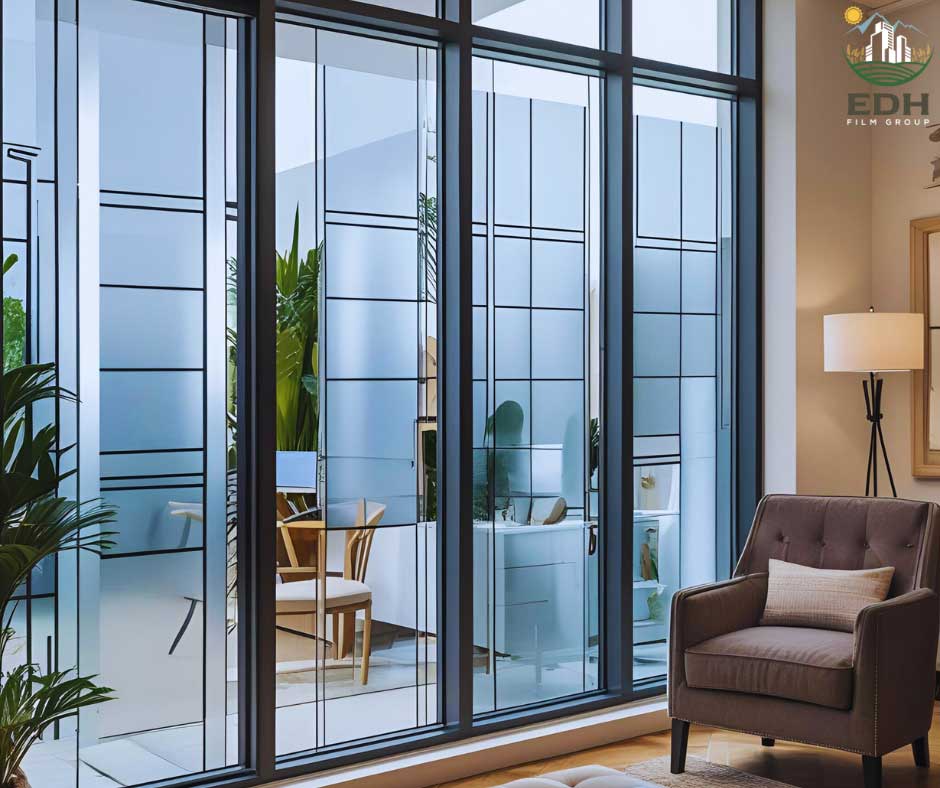Tinted windows offer more than just a sleek, modern look. They add real functional value to your space. Whether you’ve invested in residential window tinting to block UV rays and reduce glare or installed commercial window tinting for energy efficiency and enhanced privacy, protecting that investment requires intentional care. Proper maintenance ensures your tint continues performing at its best while maintaining a polished, professional appearance for years.
From installation to everyday cleaning, caring for tinted windows isn’t difficult, but it does require knowing what’s safe and what to avoid. In this article, we break down exactly how to preserve the look and function of your window tinting using best practices trusted by industry experts.
Understanding Your Tinted Windows
Every window film serves a specific function, such as solar control, impact resistance, privacy or design enhancement, but not all are built or maintained the same. At their core, these films are multi-layered polyester sheets bonded to glass using pressure-sensitive adhesives. The composition, thickness and coating technologies vary across product types, directly influencing performance, durability and maintenance needs.
What Makes Tinting Durable or Delicate?
Durability depends on several factors, including film type, adhesive strength, substrate compatibility, environmental conditions and installation quality. Professionally installed films from top-tier manufacturers like 3M™ are engineered with UV blockers, abrasion-resistant coatings and multi-layer construction that resists peeling and bubbling. Security window film, for instance, uses co-extruded micro-layer technology to maintain structural integrity under force. Solar films may include metalized or nanotechnology layers to reflect heat and light.
However, even durable films are susceptible to damage if improperly cleaned or installed on incompatible glass types. Factors such as low-angle sun exposure, poor surface preparation or the use of harsh chemicals like ammonia can accelerate degradation. Residential clients may encounter issues with household cleaning products, while commercial environments may experience faster wear due to higher usage and increased environmental exposure. Ultimately, film lifespan is a function of material resilience and how it’s handled post-installation.
Can Tinted Windows Fade Over Time?
Yes, fading is possible, although it is significantly reduced with high-performance films. Fading typically results from prolonged UV exposure, which degrades the film’s dyes, metals or coatings. Films without UV inhibitors may show discoloration, haze or optical distortion sooner, especially in sun-facing windows. Environmental conditions like excessive heat, humidity and temperature changes can accelerate chemical breakdown, particularly in older or lower-grade products.
Modern solar and architectural window films are designed to mitigate this with non-metalized layers, nano-ceramic components, UV-stabilized adhesives and scratch-resistant coatings. These features help maintain optical clarity and color stability for extended periods. Most premium films include warranties that cover fading for 10 to 15 years, but routine inspections can catch early signs of wear. Re-tinting may be necessary to restore performance and appearance if discoloration, hazing or bubbling occurs.
ALSO READ: Debunking Common Myths About Home Window Tinting
Immediate Care After Installation
After installation, window film enters a curing process that allows the adhesive to bond completely to the glass. This phase is essential for long-term durability and appearance. What you do in the first few days directly affects whether the film sets correctly, stays clear and performs as expected.
Handling the film too early can disrupt adhesion and cause visible defects or premature failure. Avoid cleaning, rolling down windows or placing pressure on the surface. Any disturbance during this time can lead to bubbling, lifting or edge separation, which may require complete reinstallation.
How Soon Can I Clean Tinted Windows?
Wait at least 30 days before cleaning tinted windows. This ensures the adhesive cures fully and any trapped moisture evaporates. Cleaning too early can loosen the film or create permanent streaks once the curing period is over; clean using safe tools and materials. Early cleaning attempts may void warranties or damage the film.
What to Expect in the First Few Days
Right after installation, it is normal to see haze, small water bubbles or slight distortion. These are part of the curing process as residual moisture escapes between the film and the glass. Complete curing may take several days or up to a month, depending on the humidity and temperature. During this time, avoid using cleaners or applying pressure. Once cured, the film becomes optically clear and ready for regular use and maintenance.
Cleaning Tinted Windows Properly
Regular cleaning plays a vital role in preserving the appearance and performance of your window film. Dust, fingerprints and environmental grime can build up over time, reducing optical clarity and undermining the film’s benefits. Proper maintenance requires minimal effort but must be performed correctly to prevent accidental damage. Using safe techniques and materials ensures your film stays intact and continues delivering results.
What Is the Best Way to Clean Tinted Windows?
The safest method is using a soft microfiber cloth, rubber squeegee and a mild, non-ammonia cleaning solution. Avoid spraying the cleaner directly onto the window. Instead, apply it to the fabric to prevent excess moisture from seeping under the film’s edges. Wipe using straight, horizontal or vertical motions with light pressure. Circular scrubbing or aggressive wiping can weaken the surface over time and create fine scratches that degrade visibility.
Warm distilled water is often enough for minor spots or smudges. Mix a few drops of baby shampoo or mild dish soap with water in a spray bottle to create a film-safe solution. Dry the surface thoroughly after cleaning to prevent streaking or mineral residue.
Are Special Tools Needed for Cleaning?
Special tools are unnecessary, but the tools you choose must be appropriate for the film surface. Use only lint-free microfiber towels or soft rubber squeegees. Avoid using paper towels, as they can leave fibers behind or create microscratches. Avoid abrasive scrub pads, rough cloths or blades of any kind. These can permanently damage the protective coating and reduce the film’s lifespan.
In commercial settings, it is essential to ensure that cleaning staff are trained to follow proper procedures. Even if used once, the wrong tools or cleaners can lead to streaks, hazing or surface dullness. Consistent care with the right materials preserves both clarity and performance over time.
ALSO READ: The Process of Home Window Tinting: What to Expect
Preventing Damage and Extending Lifespan
Maintaining the clarity and performance of your window film goes beyond routine cleaning. How you use and protect your windows daily significantly affects how long the film lasts and how well it functions. Whether you’re working with residential window tinting, commercial window tinting or specialty applications like security window film, a proactive approach helps avoid premature wear and protects your investment.
How Do I Prevent Scratches on Tinted Windows?
Preventing scratches begins with avoiding direct contact between the film and abrasive materials. Never use rough cloths, brushes or sharp-edged tools on tinted glass surfaces. Instead, rely on microfiber cloths and soft rubber squeegees and ensure all cleaning solutions are free of grit or harsh chemicals.
Keep furniture, plants and decorations safe from tinted windows in residential settings. If pets or small children frequently interact with windows, consider physical barriers or positioning furniture to prevent direct contact. Train staff and janitorial crews in commercial environments to follow proper maintenance protocols. This includes using only film-safe tools and avoiding ladders, carts or equipment that might scrape or bump against the glass. Even unintentional contact from rings, watches or belts can leave marks when windows are wiped down without care. The best prevention is consistent awareness of how and when the windows are touched or cleaned.
When Should I Consider Re-Tinting My Windows?
Retinting is necessary when the film shows signs of wear that affect its appearance or performance. These signs include discoloration, bubbling, peeling at the edges, loss of adhesion and visible scratches or haze that cannot be removed with cleaning. These issues develop over time due to prolonged sun exposure, poor maintenance practices or outdated film technology.
Most high-quality films, especially those professionally installed, are designed to last between 10 and 15 years. However, the timeline can vary depending on the film type and the environment. For example, solar window film exposed to constant, intense sunlight may degrade faster than architectural windows installed in shaded or interior-facing areas.
Re-tinting is also worth considering when your current film lacks features available in newer models. Upgrading to a modern solution can enhance UV protection, reduce energy costs more effectively and provide better clarity or aesthetics. If performance has noticeably declined or the film no longer meets your functional needs, a professional consultation can determine whether replacement is recommended.
Contact EDH Film Group Today for a Complimentary Estimate
Protecting your windows, enhancing privacy and improving energy performance starts with the right film solution and team. Whether maintaining an existing installation or upgrading with decorative window film for your home or security window film for your commercial facility, EDH Film Group delivers unmatched expertise and precision.
As a 3M™ Authorized Dealer with over 75 years of combined experience, we provide industry-leading service, premium-grade products and tailored recommendations that meet your exact project goals. We do not cut corners and we do not believe in one-size-fits-all solutions. Every window we film reflects our commitment to quality, safety and long-term performance. Get your project done right. Contact EDH Film Group today for a complimentary consultation and estimate. Let us bring clarity, protection and lasting value to your space with the professionalism you expect and the excellence you deserve.





